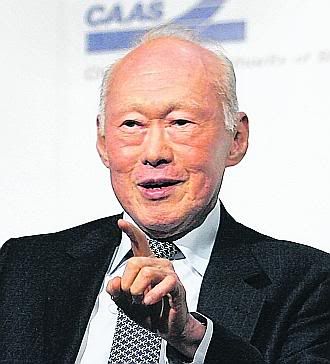- Joined
- Jul 10, 2008
- Messages
- 65,088
- Points
- 113
http://www.straitstimes.com/Breaking+News/Tech+and+Science/Story/STIStory_359982.html
April 6, 2009
Brain's moral centre found
Certain parts of brain activated when faced with moral dilemmas
LONDON: - Scientists have made significant headway into a realm generally left to philosophers and theologians.
In a report to be published in the American Medical Association's journal Archives of General Psychiatry, researchers say they have identified the parts of the brain that help humans when they are faced with difficult moral dilemmas, Britain's The Sunday Times reported.
Using sophisticated brain scanning techniques, researchers found that humans respond to moral quandaries by activating areas of the brain associated with abstract thought and such basic emotions as sex, fear and anger.
'Our research suggests there may be a basis in neurobiology for wisdom's most universal traits,' said Dr Dilip Jeste, a professor of psychiatry and neuroscience at the University of San Diego.
Dr Jeste and his colleague Thomas Meeks found that when faced with a simple situation calling for altruism, humans call upon the medial prefrontal cortex, an area linked to intelligence and learning.
But when forced to make a difficult moral judgment, other areas in the brain were activated, including those connected both with rational thought and basic emotions.
'Several brain regions appear to be involved in different components of wisdom. It seems to involve a balance between more primitive brain regions, like the limbic system, and the newest ones, such as the prefrontal cortex,' Dr Meeks said.
Increasingly sophisticated brain scanning techniques such as functional magnetic resonance imaging (fMRI), which allows researchers to see which parts of the brain become active when people undertake mental tasks, have made such research possible.
Other recent studies have tried to understand aspects of the human condition such as empathy, compassion and emotional stability, which are widely regarded as part of the intangible concept of wisdom.
April 6, 2009
Brain's moral centre found
Certain parts of brain activated when faced with moral dilemmas
LONDON: - Scientists have made significant headway into a realm generally left to philosophers and theologians.
In a report to be published in the American Medical Association's journal Archives of General Psychiatry, researchers say they have identified the parts of the brain that help humans when they are faced with difficult moral dilemmas, Britain's The Sunday Times reported.
Using sophisticated brain scanning techniques, researchers found that humans respond to moral quandaries by activating areas of the brain associated with abstract thought and such basic emotions as sex, fear and anger.
'Our research suggests there may be a basis in neurobiology for wisdom's most universal traits,' said Dr Dilip Jeste, a professor of psychiatry and neuroscience at the University of San Diego.
Dr Jeste and his colleague Thomas Meeks found that when faced with a simple situation calling for altruism, humans call upon the medial prefrontal cortex, an area linked to intelligence and learning.
But when forced to make a difficult moral judgment, other areas in the brain were activated, including those connected both with rational thought and basic emotions.
'Several brain regions appear to be involved in different components of wisdom. It seems to involve a balance between more primitive brain regions, like the limbic system, and the newest ones, such as the prefrontal cortex,' Dr Meeks said.
Increasingly sophisticated brain scanning techniques such as functional magnetic resonance imaging (fMRI), which allows researchers to see which parts of the brain become active when people undertake mental tasks, have made such research possible.
Other recent studies have tried to understand aspects of the human condition such as empathy, compassion and emotional stability, which are widely regarded as part of the intangible concept of wisdom.

